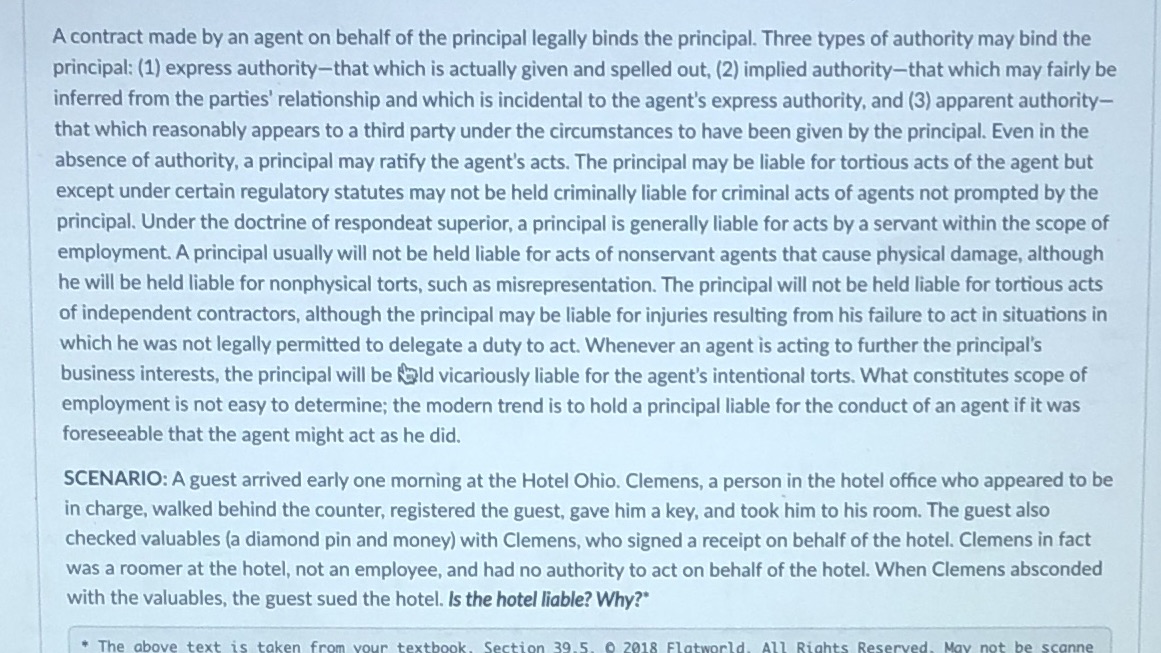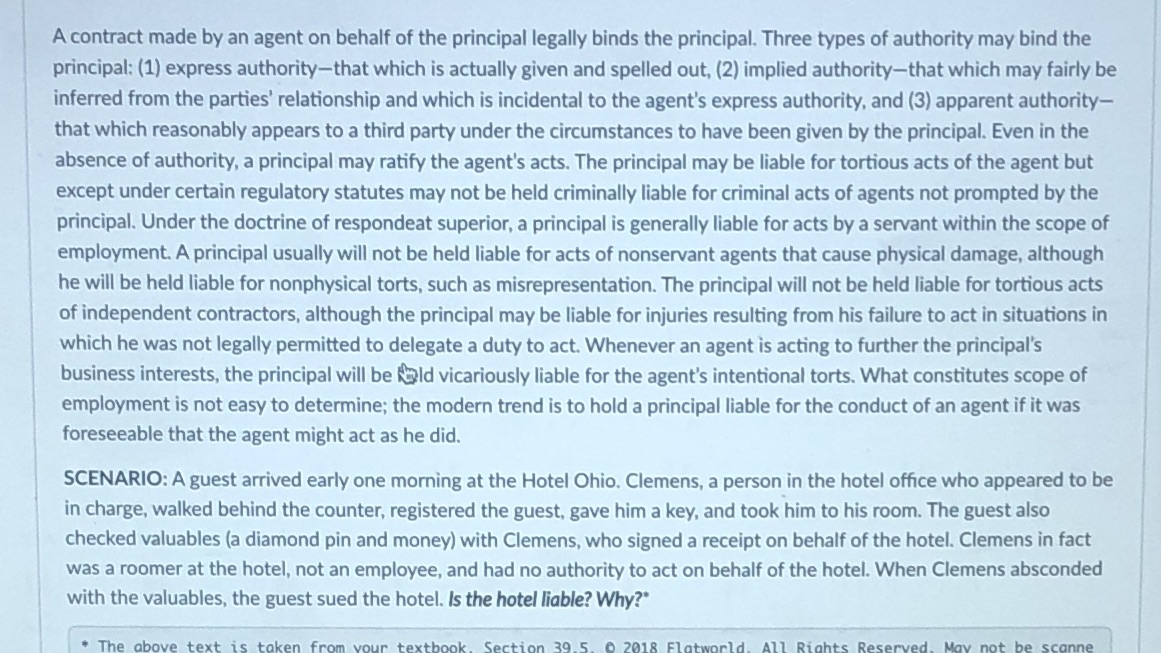
A contract made by an agent on behalf of the principal legally binds the principal. Three types of authority may bind the principal: (1) express authority-that which is actually given and spelled out, (2) implied authority-that which may fairly be inferred from the parties' relationship and which is incidental to the agent's express authority, and (3) apparent authority- that which reasonably appears to a third party under the circumstances to have been given by the principal. Even in the absence of authority, a principal may ratify the agent's acts. The principal may be liable for tortious acts of the agent but except under certain regulatory statutes may not be held criminally liable for criminal acts of agents not prompted by the principal. Under the doctrine of respondeat superior, a principal is generally liable for acts by a servant within the scope of employment. A principal usually will not be held liable for acts of nonservant agents that cause physical damage, although he will be held liable for nonphysical torts, such as misrepresentation. The principal will not be held liable for tortious acts of independent contractors, although the principal may be liable for injuries resulting from his failure to act in situations in which he was not legally permitted to delegate a duty to act. Whenever an agent is acting to further the principal's business interests, the principal will be kold vicariously liable for the agent's intentional torts. What constitutes scope of employment is not easy to determine; the modern trend is to hold a principal liable for the conduct of an agent if it was foreseeable that the agent might act as he did. SCENARIO: A guest arrived early one morning at the Hotel Ohio. Clemens, a person in the hotel office who appeared to be in charge, walked behind the counter, registered the guest, gave him a key, and took him to his room. The guest also checked valuables (a diamond pin and money) with Clemens, who signed a receipt on behalf of the hotel. Clemens in fact was a roomer at the hotel, not an employee, and had no authority to act on behalf of the hotel. When Clemens absconded with the valuables, the guest sued the hotel. Is the hotel liable? Why?" * The above text is taken from your textbook. Section 39 5. 0 2018 Flat be scanne








